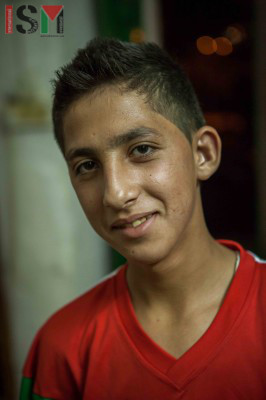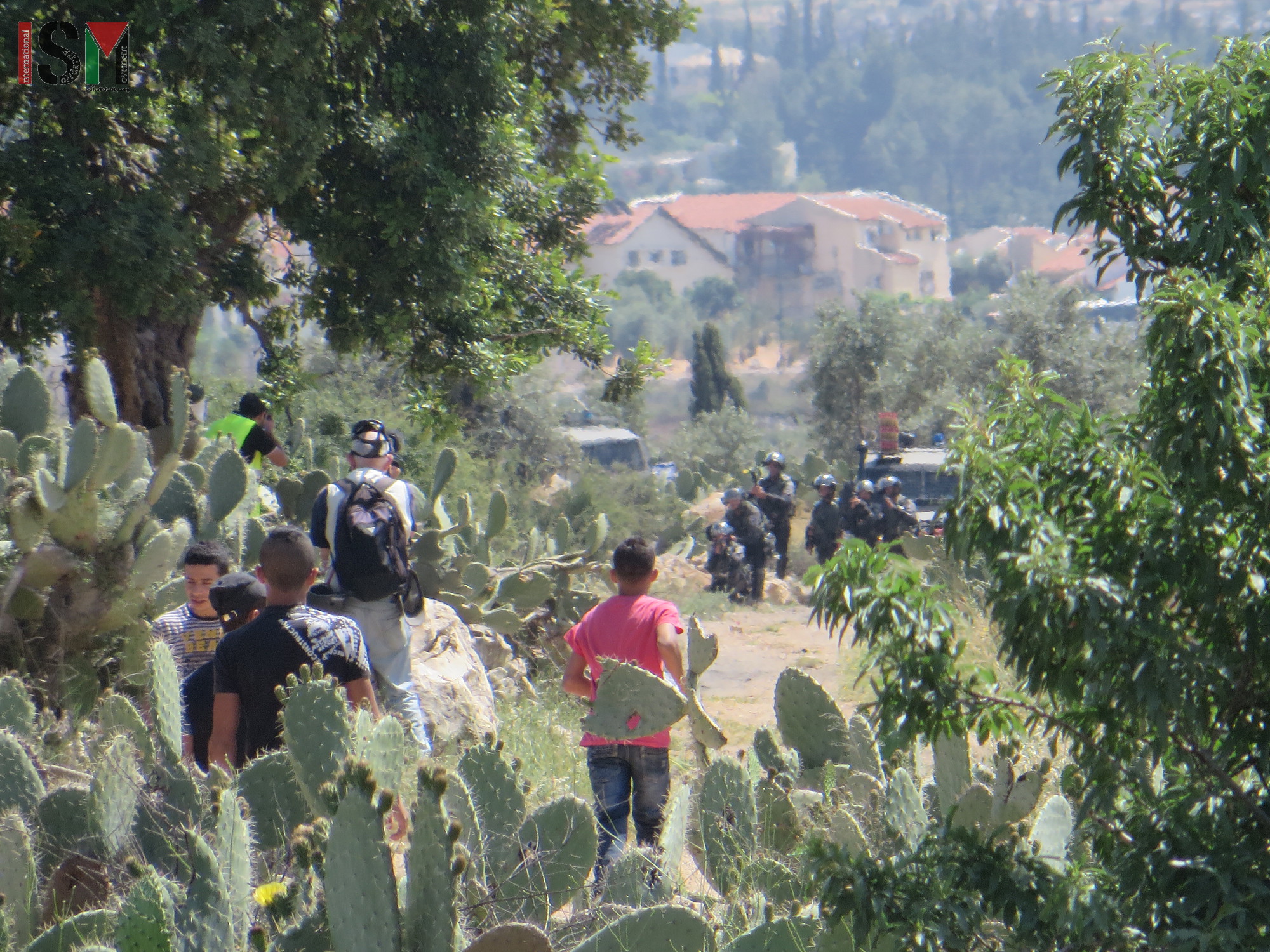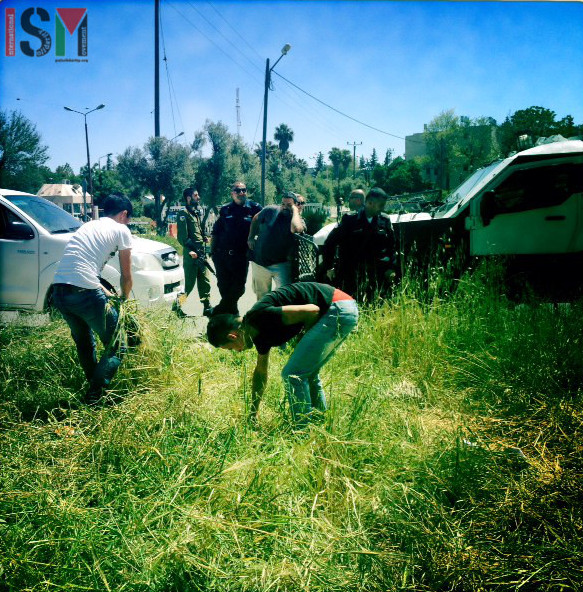Author: ISM Media
-
Two Palestinian youths violently arrested in Al-Khalil (Hebron)
04th May 2015 | International Solidarity Movement, Khalil Team | Hebron, Occupied Palestine In the early evening of Friday the 1st of May, Israeli forces arrested two Palestinian youths in the Tel Rumeida neighborhood of occupied Al-Khalil (Hebron). Nizar Salhab, accused of attacking a settler was released the same evening, Awne Imad Abu Shamsiyeh was…
-
Tear gas and fire threaten Ni’lin demo
04th May 2015 | International Solidarity Movement, Khalil Team | Ni’lin, Occupied Palestine During the weekly Friday demonstration on 1st May, 2015 in the occupied West Bank village of Ni’lin, Israeli occupation forces fired more than two hundred tear gas canisters and several rubber-coated steel bullets. Tear-gas caused a fire in the fields that was…
-
Harvesting While Harassed- Jabari family face military and settlers to gather their crops
3rd May 2015 | International Solidarity Movement, Khalil Team | Hebron, Occupied Palestine The Jabari family owns land sandwiched in between the illegal settlements of Kiryat Arba and Givat Ha’vot. In 2001, settlers illegally took over part of the land to erect a synagogue-tent on the Jaabari-family land. All settlements are illegal under international law,…



